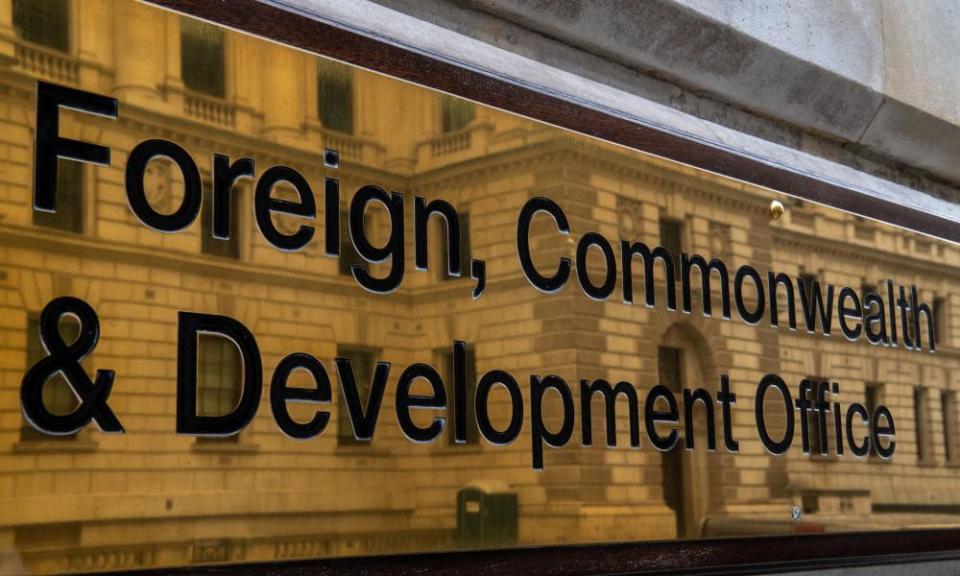UK foreign aid cuts to stay in place for at least another three years

Cuts to the UK’s foreign aid budget are to remain for at least another three years, with aid spending below the statutory target of 0.7% until at least 2024-25, the Treasury has announced.
The budget is likely to face a third round of cuts as the Treasury prepares to classify as aid billions of spending including debt relief previously outside the aid budget, so reducing the sums left for core humanitarian aid. Charities claimed “accountancy tricks” would result in £1bn being taken from the aid budget overall.
The Foreign, Commonwealth and Development Office (FCDO) said its budget would continue to be set at 0.5% of gross national income (GNI), so rising from £9bn to £10.9bn over the next three years. The size of the increase dashes hopes that the aid budget would be restored in the near term to 0.7% of GNI.
Ministers had previously pledged to restore the aid budget only once government borrowing for day-to-day spending ended. They say these conditions will not be met until 2024-25.
Related: Equality and climate feel force of UK’s foreign aid cuts
Bond, the UK network for organisations working in international development, said it looked certain that the Treasury would use “accountancy trickery” to make the aid budget pay for such areas as excess vaccine doses and debt relief, “so the government is once again balancing the books on the backs of the poorest and jeopardising trust in the UK around the world”.
Amy Dodd, the director of development finance policy at the One campaign, which lobbies on global poverty, said there were “serious question marks” around what the budget meant for UK aid, adding: “This lack of clarity given is disappointing and strengthens concerns that the chancellor is using accounting trickery to make further cuts.”
The FCDO budget was first cut in 2019 as the overall size of the economy was hit by the Covid pandemic, and then again when the Treasury insisted that the aid budget fall from the statutorily imposed 0.7% of GNI to 0.5%.
The continued nonadherence to the 0.7% target, arguably breaching statutory requirements and a Conservative manifesto pledge, was never put before the Lords but was endorsed in the Commons despite a sizeable Conservative revolt.
The defeat of the revolt opened the way for the chancellor to mount a further stealth raid on the aid budget in the spending review.
Amid briefings from charities that the chancellor was planning to reclassify tranches of aid, allies of the new foreign secretary, Liz Truss, said that as a former chief secretary to the Treasury she was alive to the Treasury’s methods and would be able to protect the budget.
The argument will now turn on whether the categories of spending newly classified as overseas development assistance should ever have been outside the Official Development Assistance (ODA) budget.
The Treasury is understood to want some foreign currency handouts from the International Monetary Fund – known as special drawing rights – to count as aid. These financial mechanisms are designed to help developing countries cope with Covid.
It is also understood to want to designate the cost of giving Covid vaccines to developing countries as official aid, something the prime minister pledged not to do at the G7 summit.

 Yahoo Movies
Yahoo Movies 